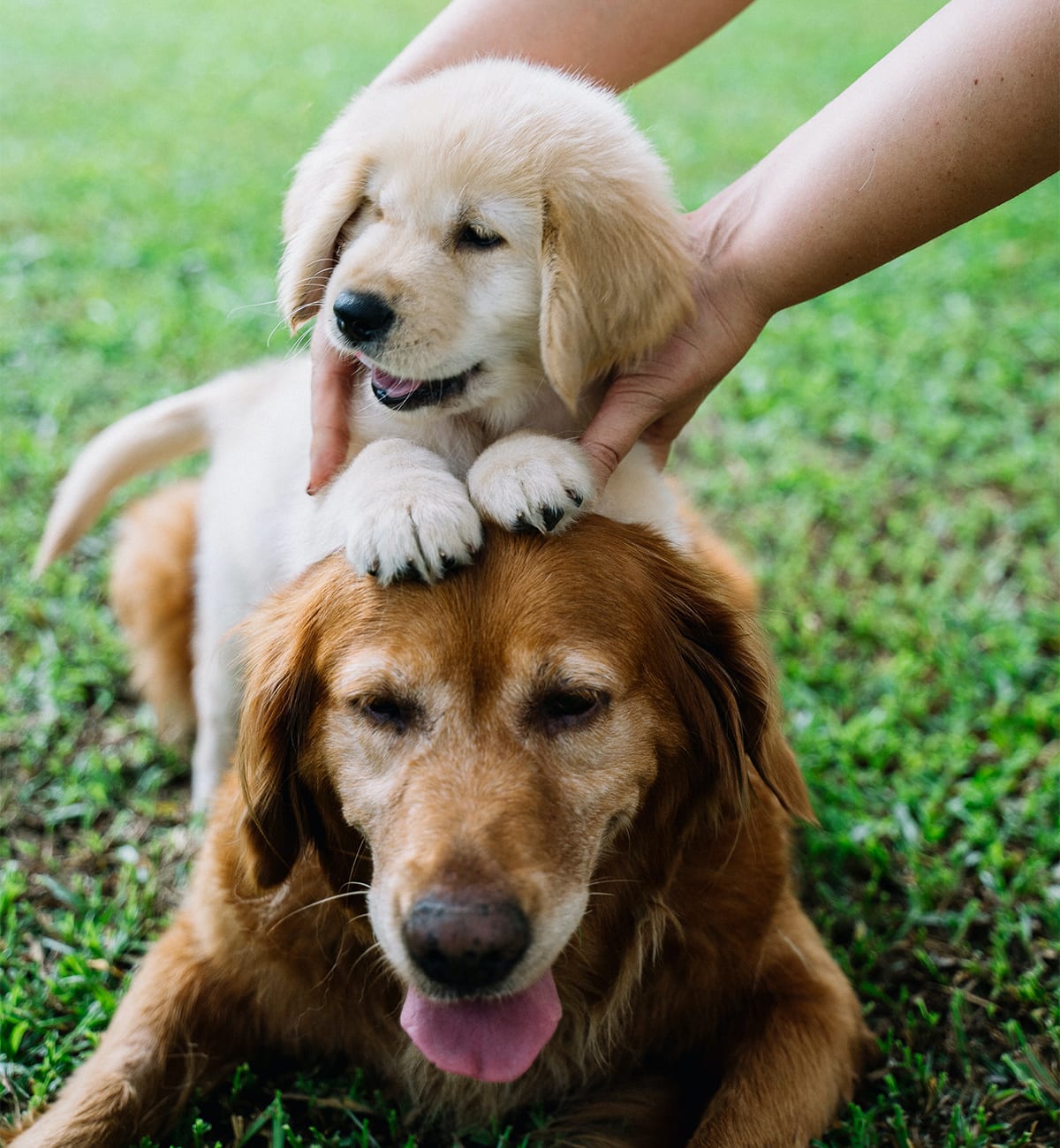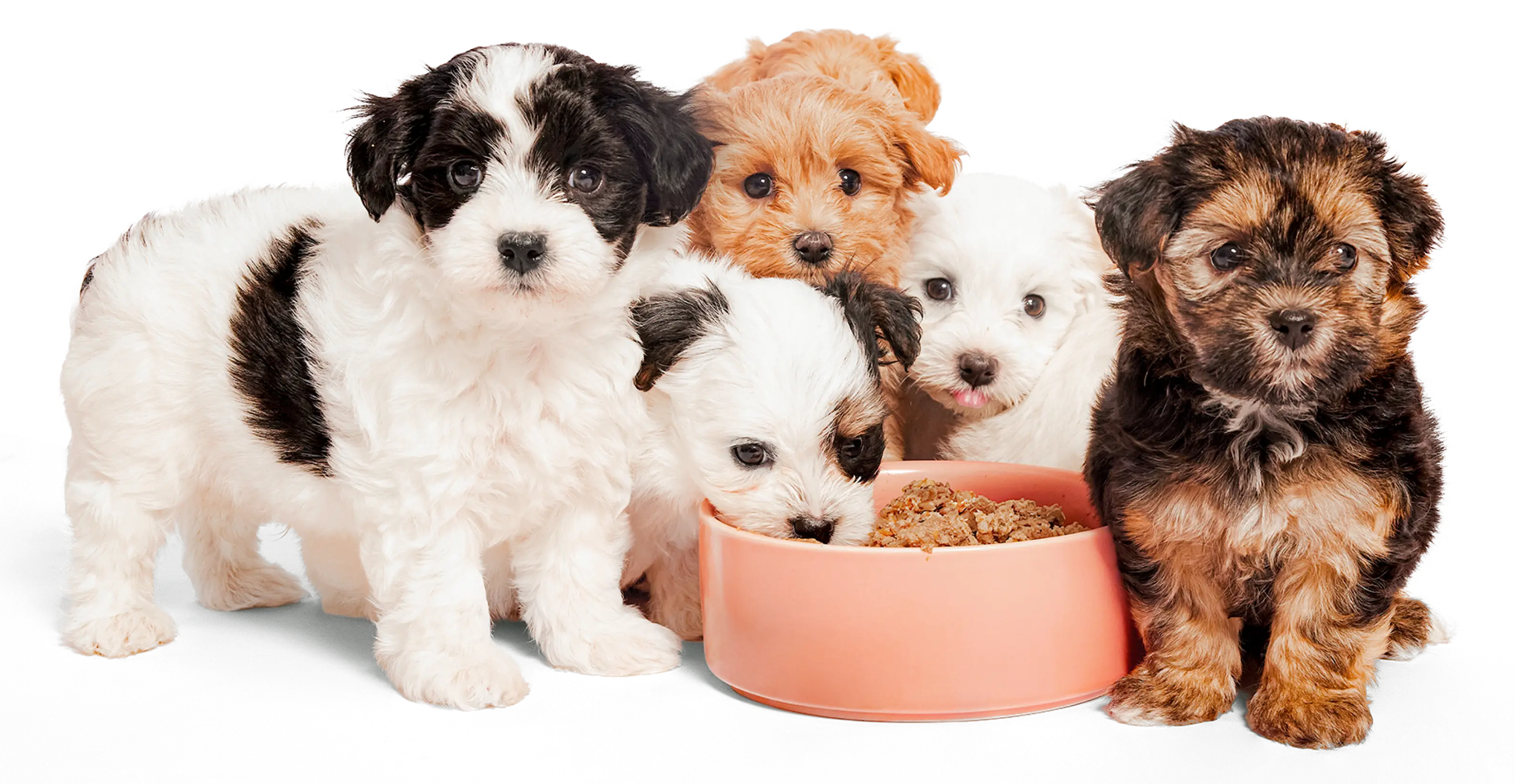The moment has arrived. You’ve found your perfect dog from a shelter or reputable breeder and now it’s time to start preparing your home for your newest furry family member. Bringing your new dog home is such an exciting moment, so to help make their arrival an easy and happy transition for all, we’ve pulled together a checklist to guide you through.

Bringing your dog home checklist:
Get an identification tag: In most states of Australia, ID tags for dogs are a legal requirement, not to mention good sense. Include your dog’s name, any serious medical conditions, your address and phone number, and securely attach the tag to your dog’s collar or harness.
Set up a dog bed: A bed for your dog will not only make them comfortable but also instil boundaries around where you want them to sleep. The bed needs to be warm and dry, and somewhere they feel protected and safe, away from any draughts that can enter under doors.
Have a food supply ready: One of the most important parts of bringing your new dog home, you’ll need two feeding bowls, one for food and one for water. For convenience, Lyka’s meals are delivered straight to your door, frozen for freshness. It’s good to have a mix of food and treats on hand to help your new pup settle in and to reward them for good behaviour and assist with training.
Prepare for toilet training: A bonus if your pup arrives completely toilet-trained, but if not, training pads will encourage your dog to go to the toilet in the right place. An enzymatic odour-neutralising spray is great for battling bad smells. Just don’t forget those poo bags for when you start going on walks.
Stock up on a range of toys: Interactive toys are a great way to bond with your new family member. Puppies in particular, need high levels of engagement and a selection of toys (around 3-4) to provide mental stimulation and allow for appropriate chewing. Better the toy than the couch, we say!
Create a grooming kit: Good grooming ensures good hygiene and will keep your dog looking fancy. Your kit can include a brush, dog-friendly shampoo and conditioner and a dog-friendly toothbrush and toothpaste. No one wants smelly breath – not even your dog!
Prepare a health kit: Great to have on hand just in case – be sure to include de-worming and parasite treatments, as well as ear and eye cleaning drops.
Purchase pet insurance: Insurance is best purchased when your pet is young. We advise doing your own research to find the pet insurance that best suits your dog’s breed and lifestyle, as well as your financial situation, making sure that you will be covered for any unexpected events that may occur.
You’re nearly there! Just a few final considerations:
Visit the vet: Once you bring your dog home, schedule a visit to your vet. Take all information about any vaccinations your dog has had, as well as any parasite treatments. It’s also a great opportunity to discuss their diet and any behavioural or health concerns. A good vet will also do a full check and ensure your dog is microchipped.
Socialisation: Puppy socialisation is vital for learning and development, and can ultimately impact their behaviour and personality. Always take your vet’s advice regarding vaccinations, particularly before socialising with other dogs, and exposing them to different people and locations. Most socialisation can start at around 8-weeks old, but the critical development window is 9-12 weeks. Older dogs can still be socialised, but may need the help of a professional behaviourist.
Dog-proof your house: Puppies are notoriously adventurous and like to explore and chew. Keep any cleaning products, electricals and blind cords out of reach. Ensure plants or flowers in your house or garden are not toxic for your dog. Keep cupboards securely closed and move any toxic items including chocolate, chewing gum and ibuprofen to a place where your dog cannot access them. You don’t want to be making an emergency dash to the vet!
Training: It’s important to set up a good routine as soon as possible. This will allow your dog to learn what is and isn’t acceptable behaviour. Training your pup doesn’t need to be difficult, you will just need to start slowly and offer plenty of positive reinforcement. Puppy school (even for older dogs, which many schools offer) can be great to learn training techniques and set up positive behavioural patterns.

Lyka: made for all ages
Vet-approved, Lyka’s recipes are complete and balanced for all life stages, including puppies. We use whole food ingredients, quality protein and powerful superfoods to help keep your new pup in tip-top shape. Join the fresh dog food revolution today!








